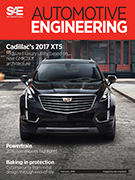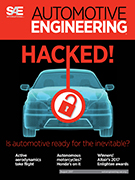Training / Education
Automotive Cybersecurity Certification Level One
2024-05-06
The ever-increasing networking and automation of vehicles make cybersecurity a core requirement for future vehicles and their components. Automobile manufacturers and suppliers are confronted with new requirements that address the cybersecurity of vehicle IT/OT.


